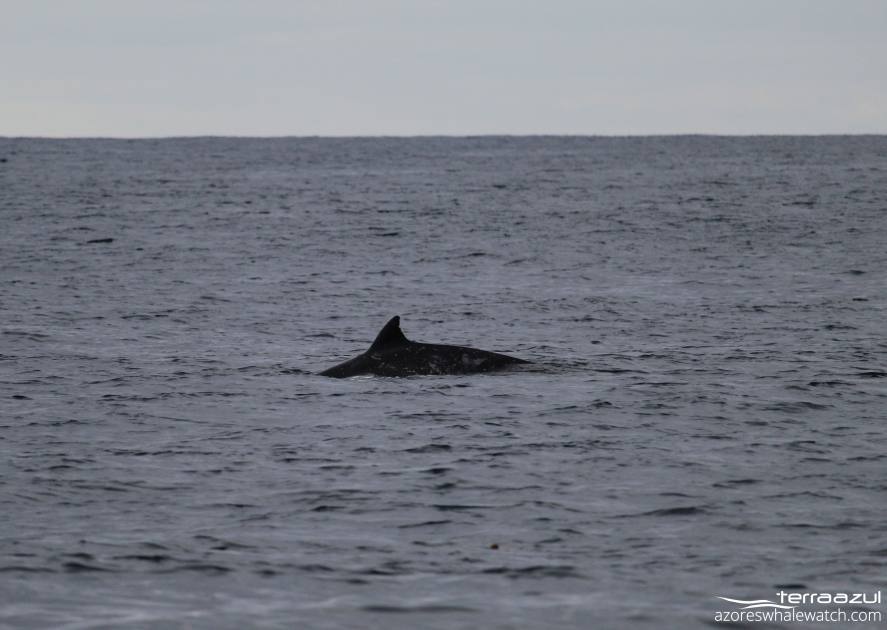
The marked dorsal fin of the adult male Blainville’s Beaked Whale (Mesoplodon densirostris) that Terra Azul boat encountered off the South-East coast of Sao Miguel island.
Earlier this month, our guests and crew were lucky enough to encounter a group of Blainville’s Beaked Whales (Mesoplodon densirostris) a few miles off the shores of Povoação, Sao Miguel Island. Mesoplodonts comprehend 15 recognized species but information about them are scarce due to their preference to live in deep oceanic waters and their diving behavior. That is, they have been reported to dive deeper than 1400 m and for more than one hour when foraging. Moreover, when at the surface they tend to avoid boats and are hard to spot, even in ideal sea conditions.
Encounters with beaked whales generally do not last long and our skipper Tiago was fast enough to capture the dorsal fin of a large adult male present in the group. The fin presented a large notch and two smaller nicks. These features allow us to compare this individual with other five individuals previously photographed in Sao Miguel waters. We found no matches and the picture will be stored as a “new” individual in MONICET database. Hopefully this adult male of Blainville’s Beaked Whale will be photographed again in the Azores archipelago, giving us some more information about the local distribution of this poorly known whale species.
Blainville’s Beaked Whales can grow up to 5 meters long and fully mature adult males are recognizable for the protruding lower jaw armed with a single tooth on each side (Figure A). In addition, adult males present several linear body scars that are believed to be the consequence of fights with other males.
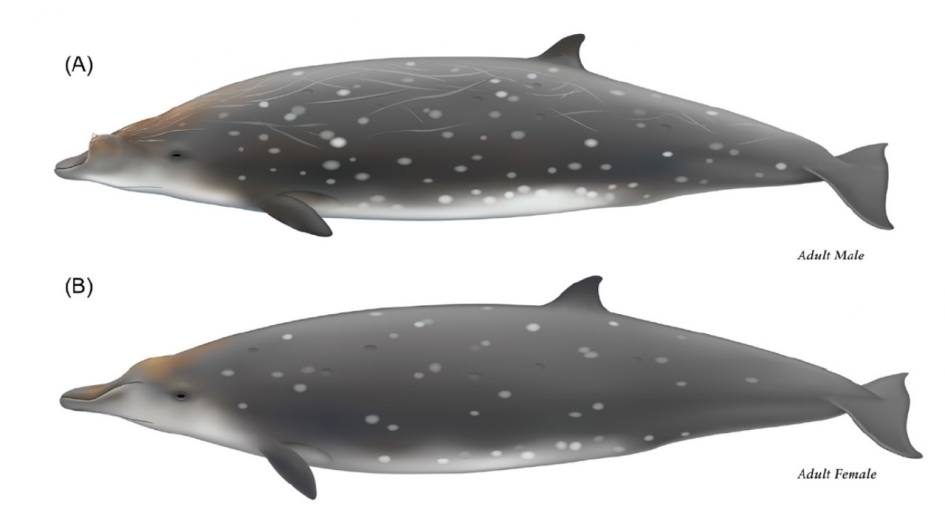
Adult male (A) and female (B) of Blainville’s Beaked Whale. The light circular patches on the sides of the body are healed cookiecutter shark (Isistius spp.) bite wounds, a typical characteristic of this and other species of the genus Mesoplodont. Source: Encyclopedia of Marine Mammals IIIrd Ed. Bernd Würsig, I. G. M. Thewissen & KIT M. Kovacs Editors.












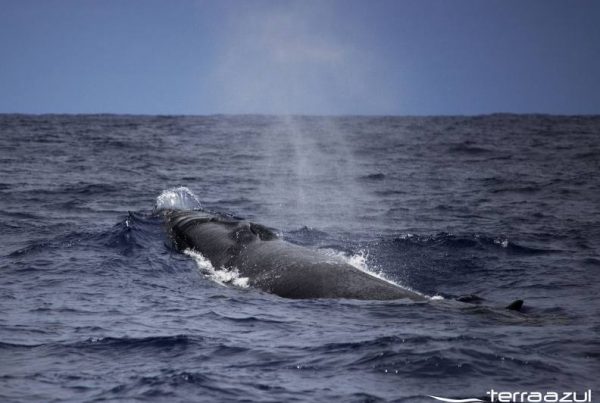
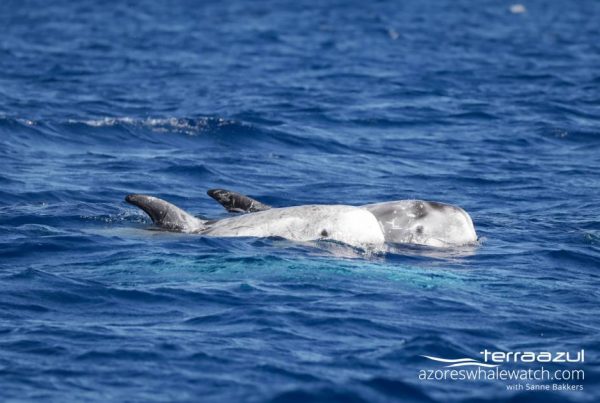
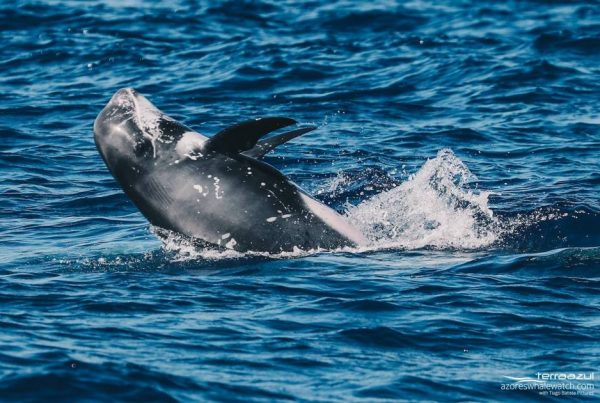



Your thoughts on this?